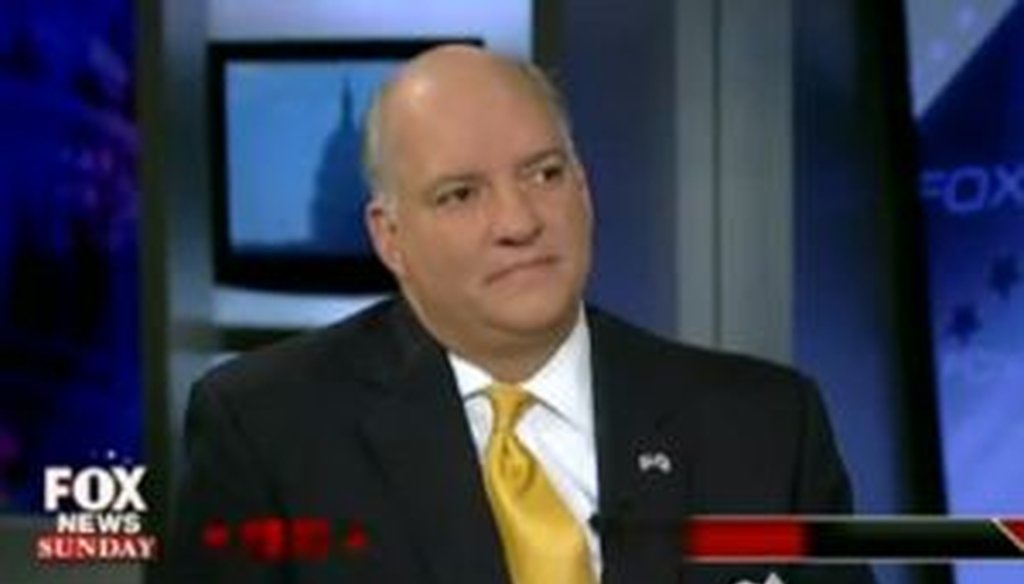

Our only agenda is to publish the truth so you can be an informed participant in democracy.
We need your help.


Rep. Steve Southerland, R-Fla., appeared on "Fox News Sunday" to discuss the 50th anniversary of the War on Poverty. We checked one of his claims.
Five decades after President Lyndon B. Johnson launched the War on Poverty, Fox News Sunday invited Rep. Steve Southerland, R-Fla., among others, to discuss the anniversary.
Host John Roberts asked Southerland about ending current programs and moving to a system of block grants: "You said, looking back on Lyndon Johnson's War on Poverty, it has failed and failed miserably. Do you keep putting more money into existing programs or do you -- as Sen. Marco Rubio (R-Fla.) suggested earlier this week -- fundamentally reform everything, (taking) a big pot of money that the federal government has and (giving) that to the states to administer in innovative ways?"
Southerland responded, "I think you have to look at the indicators -- the fundamentals of these programs. Look what causes poverty. We know that two-parent families (are) a child's greatest opportunity to avoid poverty. We know that a good quality education with daily parent involvement … reduces poverty. … If you have a job in this country, (there’s a) 97 percent chance that you're not going to be in poverty. And so, therefore, I think there's a better way."
Several readers asked us to check Southerland’s claim that if you have a job, there’s a "97 percent chance" that you're not going to be in poverty.
We found Census Bureau data from 2012 that supports his claim. The Census Bureau found that 2.9 percent of Americans between 18 and 64 who worked full-time, year-round in 2012 were in poverty.
However, we’ll note a caveat. Southerland said "if you have a job" -- and there are people in the United States who have jobs, but not full-time, full-year jobs.
Among Americans age 18 to 64 who have part-time jobs, the poverty rate is 16.6 percent. And among all workers -- Americans who have either a full- or a part-time job -- the rate is 7.3 percent.
So a more accurate number for the likelihood of poverty "if you have a job" is 92.7 percent, or, rounding up, 93 percent. That’s very close to 97 percent, but slightly off.
"While the percentages may vary slightly from one year to the next, independent sources make clear that your chances of living in poverty increase more than ten-fold if you don’t have a steady, full-time job," said Matt McCullough, a spokesman for Southerland.
A final point: The census figures show that nearly 2.9 million people worked full time for the whole year yet still ended up below the poverty line. That may only be 2.9 percent of all full-time workers, but it’s still a whole lot of people working, yet still ending up below the poverty line.
Our ruling
Southerland said, "If you have a job in this country, (there's a) 97 percent chance that you're not going to be in poverty." That’s true only for full-time jobs. If you include both full-time jobs and part-time jobs, then the percentage drops slightly, to 93 percent. On balance, we rate his claim Mostly True.
Steve Southerland, comments on Fox News Sunday, Jan. 12, 2013
U.S. Census Bureau, "Income, Poverty, and Health Insurance Coverage in the United States: 2012," September 2013
Email interview with Matt McCullough, spokesman for Rep. Steve Southerland, Jan. 14, 2014
In a world of wild talk and fake news, help us stand up for the facts.
